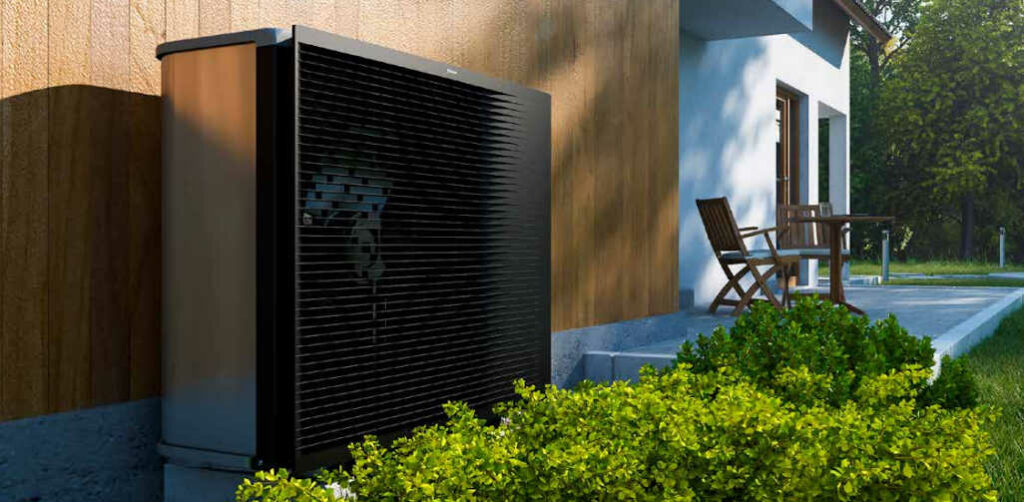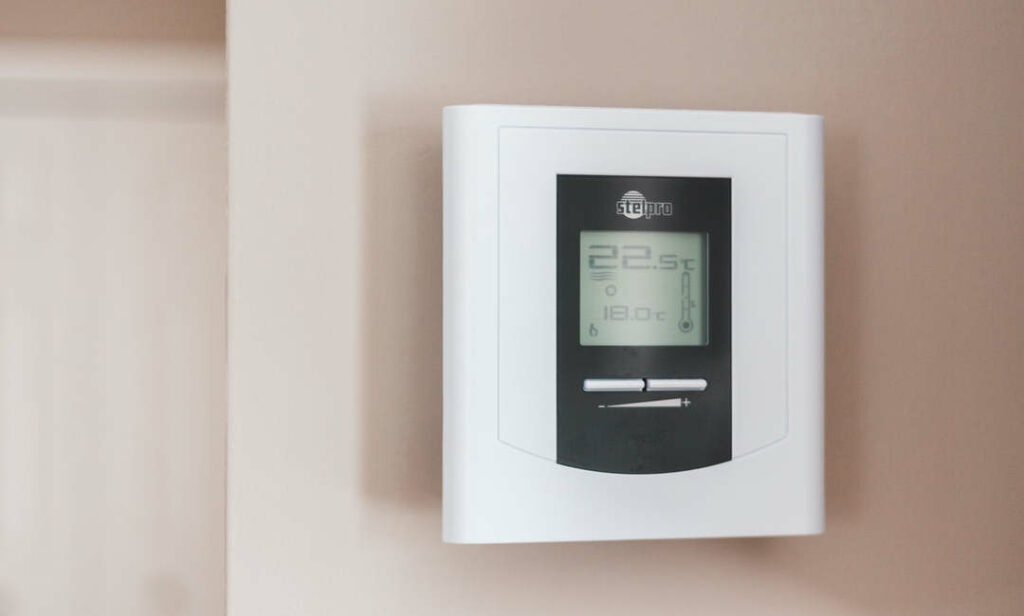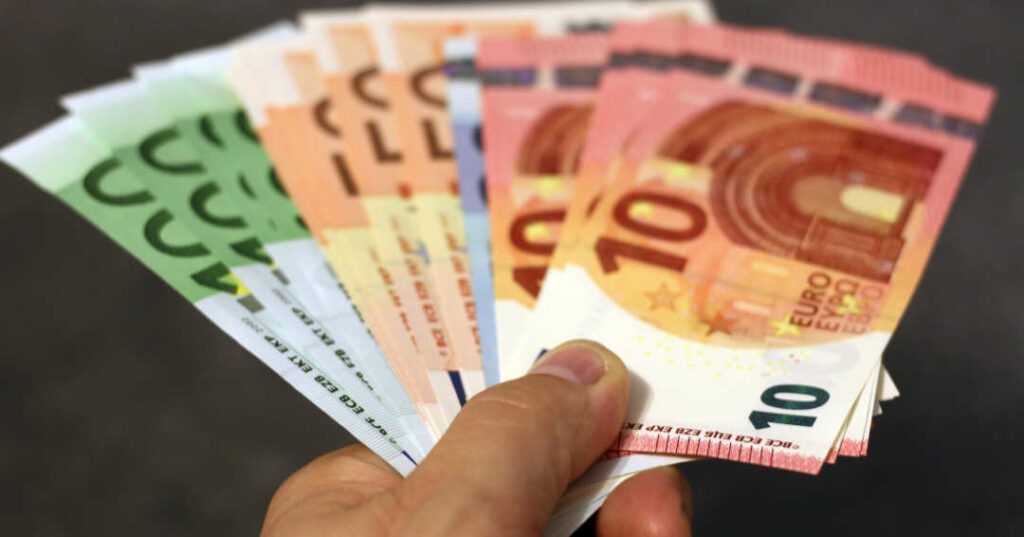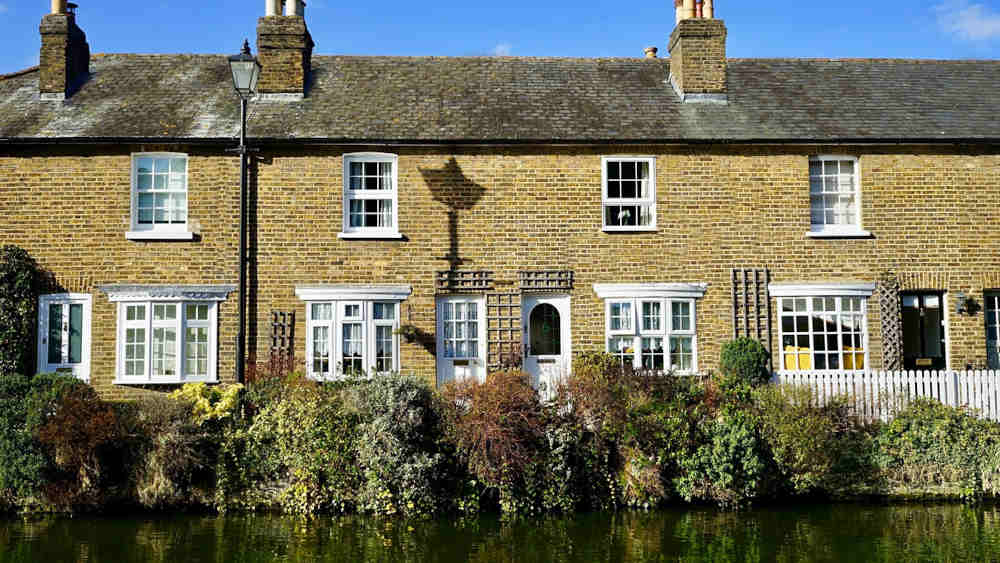With the Irish government offering heat pump grants of up to €6,500, it’s no wonder that thousands of Irish people are installing heat pumps each year. But a heat pump is not the right choice for everyone. In particular, heat pumps don’t work well in poorly-insulated houses. Read on to learn what makes heat pumps worth it (or not worth it) in Ireland.
A quick introduction to heat pumps
A heat pump is a machine that extracts (pumps) heat from the outside environment into your house. The heat can be extracted from either air (air-source heat pump) or the ground (ground-source/geothermal heat pump).
Using only one unit of electricity, a heat pump can deliver 3-7 units of heat. So heat pumps are very energy efficient. It’s for this reason that the Irish government are promoting heat pumps as a way to reduce oil and gas imports to Ireland and cut carbon emissions.
High efficiency can also translate to lower energy bills.

Will a heat pump reduce your energy bills?
Ready to jump right in to calculating your savings? Not so fast! Heat pump discussions are full of apples-to-oranges comparisons that create a mountain of confusion. So to make things clear and simple – exactly what are we comparing a heat pump to?
You see, there are two very different ways to run a heating system:
- Run the heat for a few hours in the morning and evening: Your home will be warm while the heating is on. But if it’s like most Irish houses, it will be cold again only a few hours after you turn the heating off.
- Set a thermostat to keep your home always warm: This works great in well-insulated homes. Unfortunately though, it would cost an arm and a leg to heat most Irish houses this way.
The thing about heat pumps is they’re only suited to method 2: The thermostat. This has a couple of important implications.

First – there’s no point in a heat pump for a poorly-insulated house. No heating system in the world can keep such a house warm 24-7 at a reasonable cost. You can reconsider a heat pump after adding proper insulation. Or get your home insulated and a heat pump installed all in one go with a deep retrofit.
Second – many people don’t notice a big change in their energy bills after installing a heat pump… But they do notice a huge difference in thermal comfort. This is because they go from using a few hours of heating in the evening to always-warm indoor climate control. Naturally, this requires a higher level of heat output – offsetting the heat pump efficiency gains. This net result is no change in energy bills but a great improvement in quality of life.
Are heat pumps financially worth it in Ireland?
If you’ve read this far, you should now understand that a heat pump keeps you warm all the time. (Not just a few hours in the evening). So it’s unreasonable to compare the running cost of a heat pump with a typical oil or gas boiler that leaves you cold half the time. Instead, the running cost of heat pumps should be compared to thermostat-controlled oil or gas heating.
With that in mind – use the calculator below for a quick estimate of how much a heat pump will save you:
Heat pump savings calculator for Ireland
Note, the heat pump savings calculator does not consider gas standing charges. So if your heat pump allows you to disconnect from the gas network, then you could save an additional ~€150 per year on standing charges.

How much does a heat pump cost in Ireland?
The fully installed price of a heat pump in Ireland is typically €10,000 – €19,000, excluding grants.
Several factors contribute to the wide variation. First, heat pump hardware prices vary dramatically. This is partly due to differences in features and quality. Secondly, some installations are much more complex than others, with new radiators often needed, but not always. Finally, there’s variation in the mark-up from heat pump installers.
You might also have some additional costs to get your house heat pump ready. Specifically, this means insulation upgrades. But these upgrades are worthwhile in their own right, even if you’re not planning to get a heat pump.
Heat pump grants in Ireland
Heat pump grants in Ireland are now worth up to €6,500. The heat pump grant is a fixed sum, not a percentage of the cost of works. €6,500 is for houses, while the grant amount for apartment is €4,500. To claim the grant, you must:
- Start by getting a Technical Assessment done on your home
- Have a heat loss indicator of no more than 2 (2.3 in some cases). In other words – good insulation.
- Use a Sustainable Energy Authority of Ireland approved heat pump installer
The grant bring the installed cost of a heat pump down to €3,500 – €12,500.
Alternatively, you can get a deep retrofit grant. This covers multiple home energy upgrades in one batch, typically including a heat pump installation. The deep retrofit grant rate is 50%, with a maximum payout of €25,000.
Heat pump grants are a cost-effective way to boost your property value.
What’s the payback period for a heat pump in Ireland?
There’s huge variation in the possible payback periods for heat pumps.
On one extreme, the payback period can be as short as 3.5 years if you’re currently using electric heaters. At the other extreme, if you have a small, well-insulated house, a highly-efficient gas boiler, and keep your gas connection for cooking anyway, your payback period could be 20 years. Still, most people will fall somewhere near the middle of this range: around 6 to 11 years. This could change depending on future energy prices and carbon taxes.
It’s important not lose sight of the bigger picture when considering payback periods. A new heating system is an investment in your home for the next three decades. So consider what kind of heating system you will want to be using 10, 15, and 25 years from now.

Are heat pumps worth it for convenience?
Heat pumps draw their energy directly from the electricity grid. This means no more calling around for a lorry to deliver oil. Likewise, a heat pump could let you disconnect from the gas supply, eliminating your bi-monthly gas bill.
Maintenance of a heat pump is about the same as an oil or gas boiler, with one service per year recommended by manufacturers. This service costs the same as or slightly less than a boiler service.
Safety benefits of heat pumps
Safety is an often-overlooked benefit of heat pumps. Heat pumps have the advantage of being carbon monoxide-free. Each year in Ireland, many people become ill and around 6 are killed due to carbon monoxide. So swapping fires and boilers for heat pumps can save lives.
Health benefits of heat pumps in Ireland
Air pollution is another silent killer from solid fuels. Indeed, around 1,300 people die each year from solid fuel air pollution in Ireland. And that’s on top of other chronic health issues like asthma that are made worse by poor air quality. But the only thing coming from the back of a heat pump is cool air. So replacing old heating systems with heat pumps can have huge health benefits via cleaner air.

Heat pump can also improve health by enhancing the warmth of your home. This can be important for everyone, but especially the elderly. A warm home is also more likely to be free from damp and mould. This also makes for better indoor air quality and respiratory health.
Heat pumps for cooling in Ireland
While the Irish weather rarely gets too hot for comfort, there are some reasons why the cooling feature of some heat pumps could be worth considering.
Firstly, modern houses with very high levels of insulation can sometimes get uncomfortably hot in summer. Large areas of glazing, and an Irish design ethos that emphasises keeping houses warm, not cool, amplify the problem. Fortunately, a heat pump with cooling can save the day. Even if only for a few weeks in the year, the difference in comfort can be massive.
Secondly, global warming will continue to push temperatures higher. While a degree or two might seem slight, it can be enough to tip a home past the maximum comfortable temperature much more frequently. Especially when you consider than many modern Irish houses are already at risk of overheating due to their design.
Cooling with a heat pump is generally very efficient. This is especially true for ground-source heat pumps which dump surplus heat into the ground where it can later be recovered when heating is needed.
Bottom line: is a heat pump worth it for you?
To answer this question, I need you to first consider:
- How well insulated is your home?
- How do you use the heating?
You have a well-insulated home and keep the heating on a thermostat: In this case, your house should already have good thermal comfort in winter. Switching to a heat pump could give you substantial savings on your energy bills. You can weight the energy savings and boost to your property value up against the initial cost. You may also benefit from the cooling function of some heat pumps during the summer.
Your home has okay insulation, and you use the heating at selected times of the day: You probably have an efficient condensing oil or gas boiler. In this case, you can increase the thermal comfort of your home to the very highest standard by switching to a heat pump. This will likely result in a moderate saving on your energy bills, at the same time that you’re increasing the thermal comfort of your home. Alternatively, if you currently have a less-efficient oil or gas boiler, then savings could be substantial.
You have a poorly-insulated house and use the heating at selected times of the day: Heat pumps do not work well in poorly-insulated houses. So your first priority should be insulation, as this will greatly improve the warmth of your home. Only after insulating your home should you consider adding a heat pump.